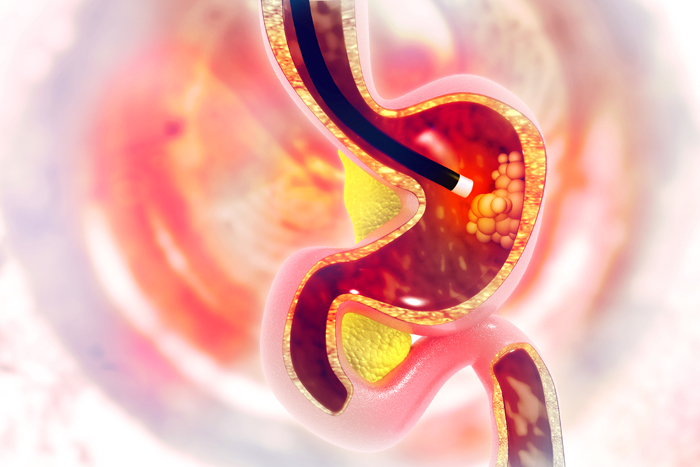General Surgery and Gastroenterology
Surgery refers to the medical procedure performed to investigate or treat a physical illness, condition, or disease. Surgeries are performed by experienced medical practitioners who operate using techniques that require meticulous manual skills and biomedical instruments.
Gastroenterology is a subset of medical science that revolves around the digestive system of the human body. All the organs along the route of digestion, their ailments, diseases, and treatment come under the domain of gastroenterology.

What is General Surgery and Gastroenterology? How are they related?
Gastroenterological diseases might require surgical procedures as a form of treatment. If the patient has a gastrointestinal disorder, their doctor/surgeon could advise them to undergo surgery to improve their digestive conditions.
These surgeries are often invasive procedures that deal with the ailments of the digestive organs. Surgeons who specialize in operating on gastrointestinal diseases are certified as gastroenterological surgeons. The field of gastroenterology relies heavily on general surgical procedures to fix the severe symptoms of a disorder.
What are the Symptoms of Gastrointestinal Disorders?
Some of the common symptoms of a gastrointestinal disorder are:
- Sharp abdominal pain
- Stomach ache
- Bloating, flatulence
- Diarrhea
- Indigestion
- Spasms
- Acidity
What are the Surgical Procedures Under Gastroenterology?
If a gastroenterologist diagnoses you with a digestive illness that entails surgery as a form of treatment, it could be one of these:
- Colon surgery
- Gallbladder surgery
- Esophageal surgery
- Pancreatic surgery
- Appendectomy surgery
- Colonoscopy surgery
- Fistula surgery
- Gastrointestinal bleeding surgery
- Hemorrhoidectomy surgery
- Endoscopy surgery
When To See A Doctor?
Many different gastroenterological disorders and their various causes determine if a surgical procedure will be required. A gastroenterologist is experienced in treating these medical conditions of the digestive system. Depending on the above 10 types of gastrointestinal surgeries, here are a few indicators about when you should consult a doctor:
- If you find blood in your stool
- If your stomach aches are persistent for days
- If you observe a hernia
- If you experience excruciatingly painful abdominal spasms
- If you experience acid reflux for long durations
- If there is pain in the region of your appendix
- If you experience digestive issues for more than a week
In the above cases, or if you experience any severe symptoms/pain related to your digestive system, you should immediately consult a doctor. You are advised to book an appointment with a gastroenterologist.
Request an appointment at Apollo Spectra Hospitals.
Call 1860 500 2244 to book an appointment.
What are the Benefits of the Surgery?
After a thorough diagnosis of your illness, a gastroenterologist might recommend you to undergo surgery to get rid of your disorder. This surgery can have multiple health benefits for you as a patient. Some of these benefits are:
- Improved functionality of the digestive organs, i.e., improved digestion.
- Reduced pain, ache, and cramps.
- Reduced discomfort due to illnesses.
- Reduction in the severity of piles, hernia, tumor, appendix, etc.
- Reduction in IBS, bloating, constipation, and other symptoms.
- Pain relief for those patients whose bodies did not respond to the medication.
What are the Causes of Gastrointestinal Disorders:
Gastrointestinal disorders might be the result of the following health conditions:
- Irritated Bowel Syndrome (IBS) is caused by excess bloating/gas in the stomach.
- Peptic ulcers are caused by irregular diet, timings, and unhealthy food choices of the patients.
- GERD, gallbladder disease, diverticular disease, inflammatory bowel disease, etc., are among the many causes of gastrointestinal illnesses.
- Ignoring digestive issues at their early stages.
Conclusion
General surgery finds a wide variety of applications in the field of gastroenterology. Thus, treating these illnesses with surgery is in your best interest. It is highly recommended that you get yourself checked immediately if you experience any symptoms of gastroenterological diseases.
A consultation at the medical facility of an experienced gastroenterologist could become the first step in treating your digestive disorder. Veteran surgeons who are qualified gastroenterologists at the Apollo Hospitals can help you get rid of chronic digestive disorders.
Request an appointment at Apollo Hospitals.
Call 1860 500 2244 to book an appointment.
The surgery itself might require 4-6 hours, and the patient is expected to feel better after 1-2 weeks. Overall, 3-4 weeks might be necessary for patients.
GERD, peptic ulcer, hiatal hernia, intestinal ischemia, infections, polyps and cancer, Crohn’s disease, ulcerative colitis, diverticulitis, and peptic ulcer disorders.
The prestigious Apollo Hospitals with state-of-the-art medical equipment and expert doctors can treat your digestive disorders. The GI bleeding treatment in Bangalore and the colonoscopy surgery at Bangalore are among the best available facilities. Request an appointment at Apollo Hospitals. Call 1860 500 2244 to book an appointment.
Our Doctors
DR. J G SHARATH KUMAR
MBBS, MS (GENERAL SU...
| Experience | : | 13 Years Experience |
|---|---|---|
| Speciality | : | General & Laparoscop... | Location | : | Koramangala |
| Timings | : | Mon to Sat : 8:30 AM... |
DR. SANGEETHA SIVA
MBBS, DNB - General ...
| Experience | : | 19 Years Experience |
|---|---|---|
| Speciality | : | General Surgery... | Location | : | Koramangala |
| Timings | : | Mon, Wed & Fri : 3:0... |
Our Top Specialities
NOTICE BOARD
CONTACT US
CONTACT US
 Book Appointment
Book Appointment




.svg)
.svg)
.svg)
.svg)








